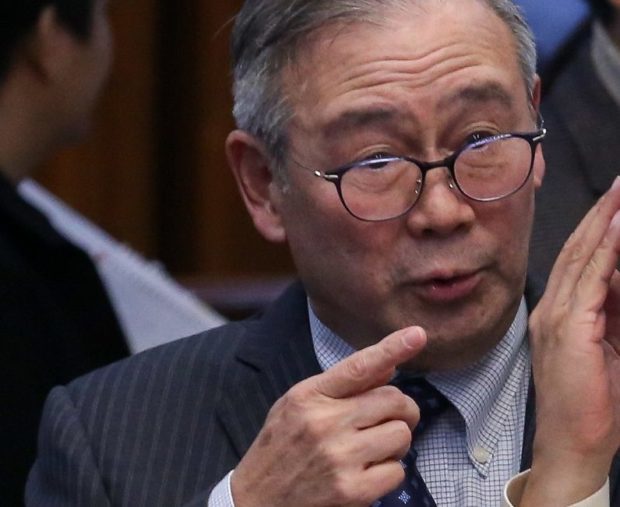MANILA, Philippines — Foreign Secretary Teodoro Locsin Jr. has made common cause with the militant labor group Kilusang Mayo Uno (KMU) in denouncing the move of Philippine Health Insurance Corp. (PhilHealth) to increase the mandatory contribution of overseas Filipino workers (OFWs) starting this year.
An online petition on Change.org against the PhilHealth move has so far gained close to 300,000 signatures.
Locsin said the state health insurance payments required of migrant workers would not benefit them at all. “It is like an income tax which was abolished for OFWs and even their tax-free income filings were destroyed,” he tweeted on Sunday.
“They are just totally out of the purview of government exactions for which they will not benefit at all,” said Locsin, who retweeted the call for help by an OFW who opposed the increased premium contribution asked by PhilHealth.
PhilHealth President Ricardo Morales and the agency spokesperson, Shirley Domingo, were repeatedly sought for comment but had not responded as of this reporting.
Under PhilHealth Circular No. 2020-0014 dated April 2, the “premium of overseas Filipinos shall be computed based on their monthly income, to be paid in Philippine peso equivalent, in accordance with the terms of payment and corresponding due dates as prescribed by the corporation.”
The circular mandates OFWs earning a monthly income of P10,000 to P60,000 to pay 3 percent of their monthly salary, up from 2.75 percent in 2019.
Yearly increases
The percentage will increase every year until 2025, when Filipinos overseas will be required to pay 5 percent of their monthly salary if they earn P10,000 to P100,000 a month.
This year, an OFW is required by PhilHealth to pay an initial P2,400 before leaving for abroad and to pay the balance of the premium contribution through quarterly payments within a year.
The circular also stated that from Jan. 1, 2021, the minimum acceptable initial payment is a three-month premium, based on the prescribed rate at the time of payment.
“Why don’t we just leave OFWs alone except to help them when they are in trouble?” said Locsin, pointing out that OFW remittances “account for 10 percent of our GDP (gross domestic product) according to the assholes who want to take some of their earnings.”
The online petition protested the increased mandatory contribution and denounced as “very unfair and inhumane’’ the interest and penalty to be imposed for missed payments.
“A member who fails to pay the premium after the due date set by the corporation (PhilHealth) shall be required to pay all missed contributions with monthly compounded interest,” read the circular, which recently took effect after its publication in a newspaper last month.
Additional burden
The KMU on Sunday described the PhilHealth order as an additional burden for OFWs who are still struggling with the impact of the new coronavirus disease (COVID-19) pandemic.
“Why burden our OFWs with more mandatory payments when the government cannot even provide them with sufficient aid in this time of crisis? Why make them more cash-strapped?” KMU chair Elmer Labog said in a statement.
The KMU said increasing PhilHealth contributions would neither give OFWs health security amid the pandemic since the government could not even provide a comprehensive and strategic medical solution to addressing the health crisis.
Labog said OFWs faced hardships while working in other countries and being away from their families. “The government has the gall to call our OFWs modern heroes, when it makes them suffer more,” he said.
The KMU called for the scrapping of the PhilHealth circular and for the government to give more aid to OFWs.
